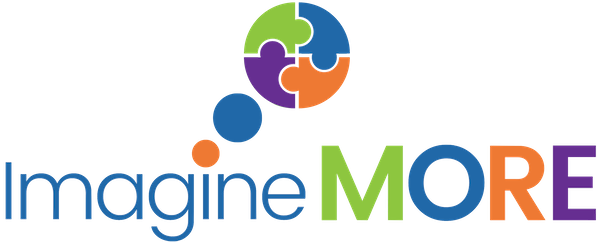At Imagine More, we encourage people to use the one person at a time approach. We don’t support models that segregate or congregate people based on disability.
The phrase ‘one person at a time‘ reminds us to free our minds of negative and limiting stereotypes about people with disability. It helps us understand the importance of knowing a person’s interests, attributes, needs, potential contributions and ideal life path. Such insights ensure that the person is properly supported to live their best life. This means participating and contributing to their local community as they seek out the good things in life we all desire.
The one person at a time approach helps us to understand that “if you know one person with autism, you know one person with autism.” The diagnosis doesn’t define who the person is. And we know that a person’s disability will impact every person differently.
Many services claim to be “person-centred” or “individualised to a person”. In practice, this person-centric approach is often compromised by
- the constraints of what a service can offer their (often extensive and diverse) clientele due to the need to be profitable or work within a budget
- limited staff training to ensure high expectations are held for what people with disability can achieve, and
- limited time spent to really get to know a person in different environments.
Due to these constraints, we often see the stereotyping of people with disability, especially around their interests, needs, and capabilities. Stereotyping is often done unconsciously. Have you ever wondered why you hear statements like;
- “People with Down syndrome are always happy”, and
- “All people with autism lack empathy for others.”
These are stereotypes of certain groups of people.
It surprises me that we don’t spend more time taking an honest look at our own unconscious beliefs and where they have stemmed from. If we don’t raise our unconscious beliefs to our consciousness, we cannot shift how we think about certain groups of people and how we then treat them.
A challenge that services face is how to offer a truly individualised service when they support a large number of clients. Service staff seldom spend enough time with a person to really get to know them on a deep level.
If the needs of a person with disability are well understood, then the person will more likely be supported to look beyond segregated and congregated opportunities. The person could be supported to thrive by being genuinely included in education, leisure activities, employment, and housing, and holding meaningful relationships.
We know that segregated and congregated options find it difficult to cater to the individual needs of so many clients. It’s therefore not surprising that compromises will happen which will, in turn, impact the person’s growth, connections, and life path.
Contrary to wide held belief, congregated settings also don’t guarantee the person’s safety. We only have to look at the Disability Royal Commission reports that clearly state how dangerous congregated settings are for the safety of people with disability.
We encourage services to look into how they can change their model to build well supported, consistent, and reliable support staff with a deep knowledge of Social Role Valorisation to guide their work. I know many families dream of engaging such a service. Many families are creating their own teams of staff through self-managing their funding.
These are all things to consider when supporting someone to make decisions about their life.
The typical life path is what we support and promote. It is often more challenging to pursue this path as many obstacles can be placed in the way. But we are up for the challenge to support and guide you to navigate the barriers, share stories of what is possible and celebrate your successes.
We hope you’ll make 2022 your year of applying the process of one person at a time.

